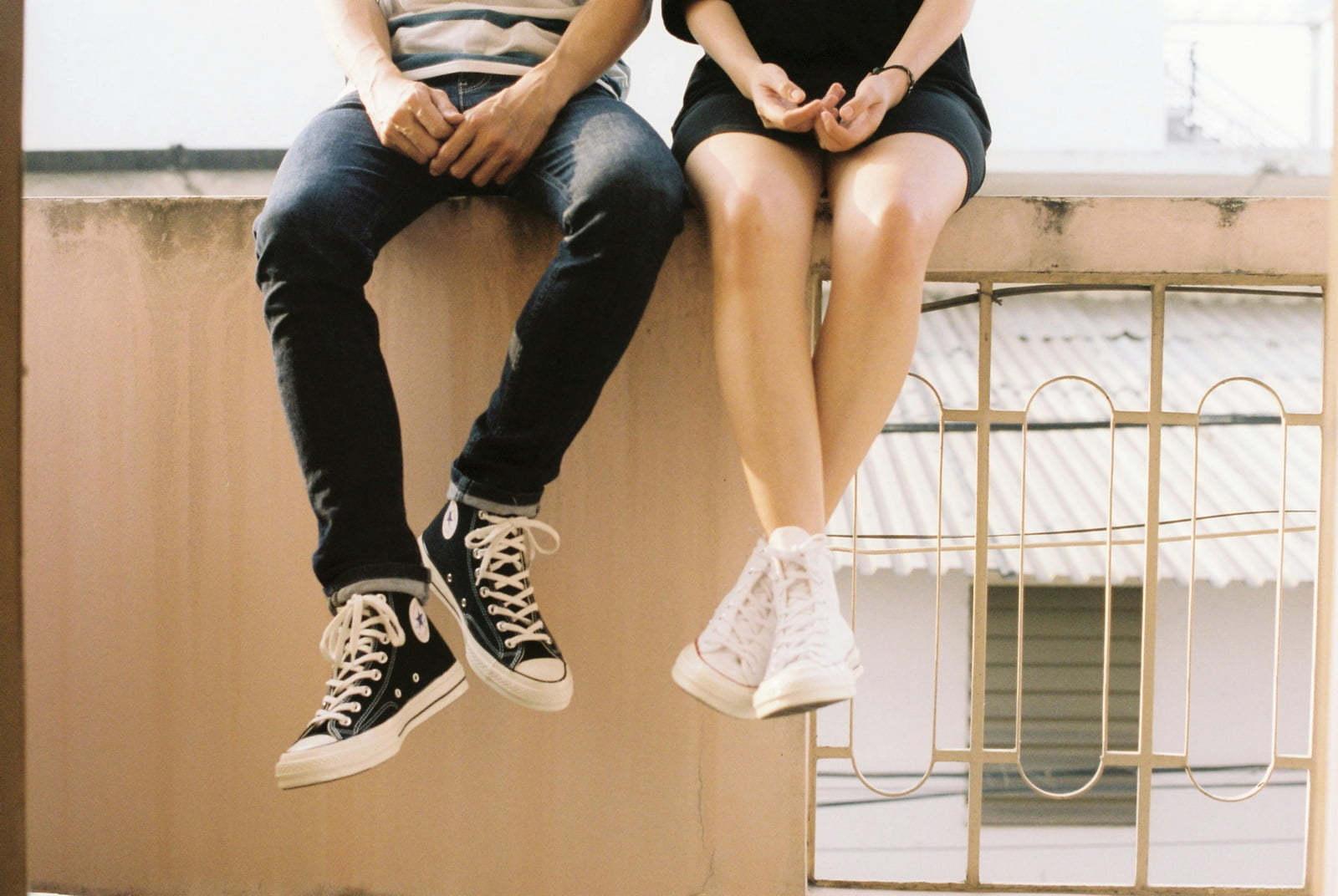Everyone, at some point in their life, has heard tales of the undead shambling about in search of a snack (usually our brains). But, do you really know your zombie trivia? From the science behind ‘zombie ants’ to the head-banging history of ‘white zombie,’ there’s a world of wacky and wonderful wisdom waiting to be unearthed!
So, before your next zombie movie marathon or ‘world zombie day’ party, let’s dig a little deeper into these mystical creatures. No, not with a shovel—just dive into these fun facts about zombies!
1. Origin of the Zombie Concept
Ah, the beginnings! The term ‘zombie’ traces its origins back to Haitian folklore. Here, zombies were not necessarily the flesh-eating monsters we know today but spirits of the deceased. Over time, this concept traveled and evolved, especially in Hollywood. It’s pretty fascinating how a cultural element transformed into an icon of pop culture and horror.
Imagine meeting someone from 18th century Haiti and trying to explain our zombie movies. They’d be like, “Wait, they do what now?”
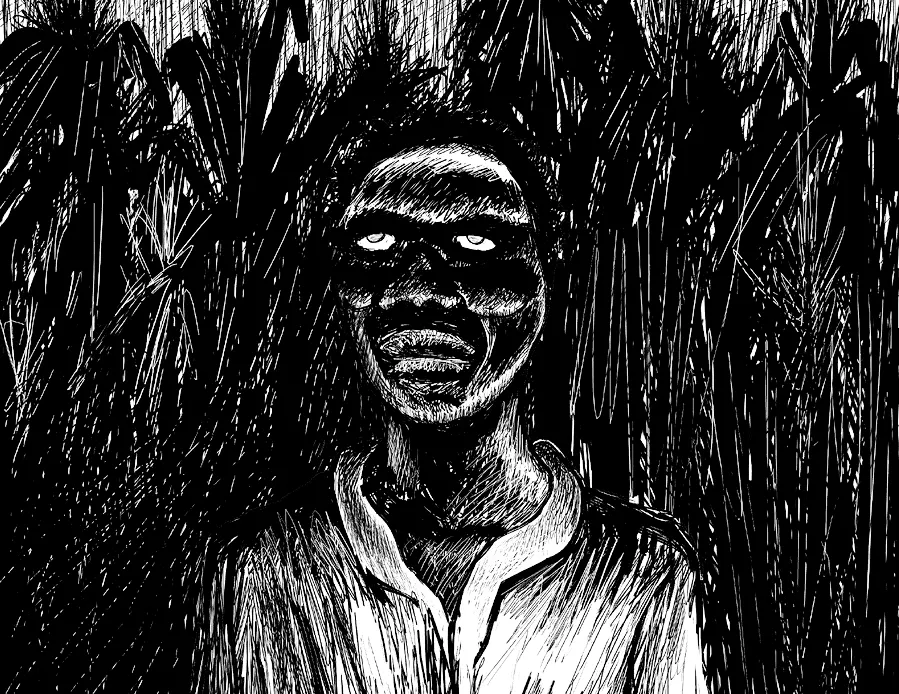
Image source: Wikimedia Commons
2. The First Zombie Film: White Zombie
Popcorn, anyone? Speaking of zombie films, the first-ever was titled White Zombie. Released in 1932, it’s not about undead folks trying to color-coordinate. The film actually revolves around a woman turned into a zombie by a voodoo master.
While not quite the gruesome gore-fest we’re used to today, it set the stage for a genre that would become, well, monstrously popular!
3. Zombie Ants: Nature’s Very Own Undead
Okay, brace yourselves, this one’s a trip. Zombie ants are legit, and they’re a result of science, not fiction. Certain fungi, like Ophiocordyceps unilateralis, infect ants, take over their central nervous systems, and essentially turn them into zombies.
These ‘zombified’ ants leave their colonies, attach to vegetation, and eventually sprout fungi from their heads. Yep, nature is both creepy and cool. Science FTW!
4. World Zombie Day: The Undead’s Special Day
If you thought only humans had their special days of celebration, think again. World Zombie Day is an international annual event where fans of zombie culture come together to raise awareness and support for hunger and homelessness.
It’s a charitable ‘zombie walk’ where participants dress as zombies and shamble around cities, collecting donations for various charities. So, the next time you spot a group of zombies walking the streets, don’t run. They might just be trying to help out! How’s that for a twist?
5. Zombie Fever Isn’t Just a Metaphor!
Hold onto your thermometers! Historically, in certain cultures, symptoms that we might attribute to a severe illness today, like catatonia or unresponsiveness, were sometimes interpreted as signs of zombification. Hence, the term zombie fever.
It wasn’t about undead creatures having a temperature but people misinterpreting medical conditions. Thankfully, medical science has come a long way, and we now understand these conditions much better. But, the phrase remains, a chilling reminder of our past beliefs.
6. Not Just Humans: Animal Zombies in Myths
While our pop culture is obsessed with human zombies, various cultures around the world have myths about zombified animals. From undead dogs guarding the underworld to zombie birds delivering messages between the living and the dead, these tales are just as spine-chilling.
Trivia time: Did you know some believe that spotting a zombie cat can bring good fortune? Might not want to rely on that one, though.
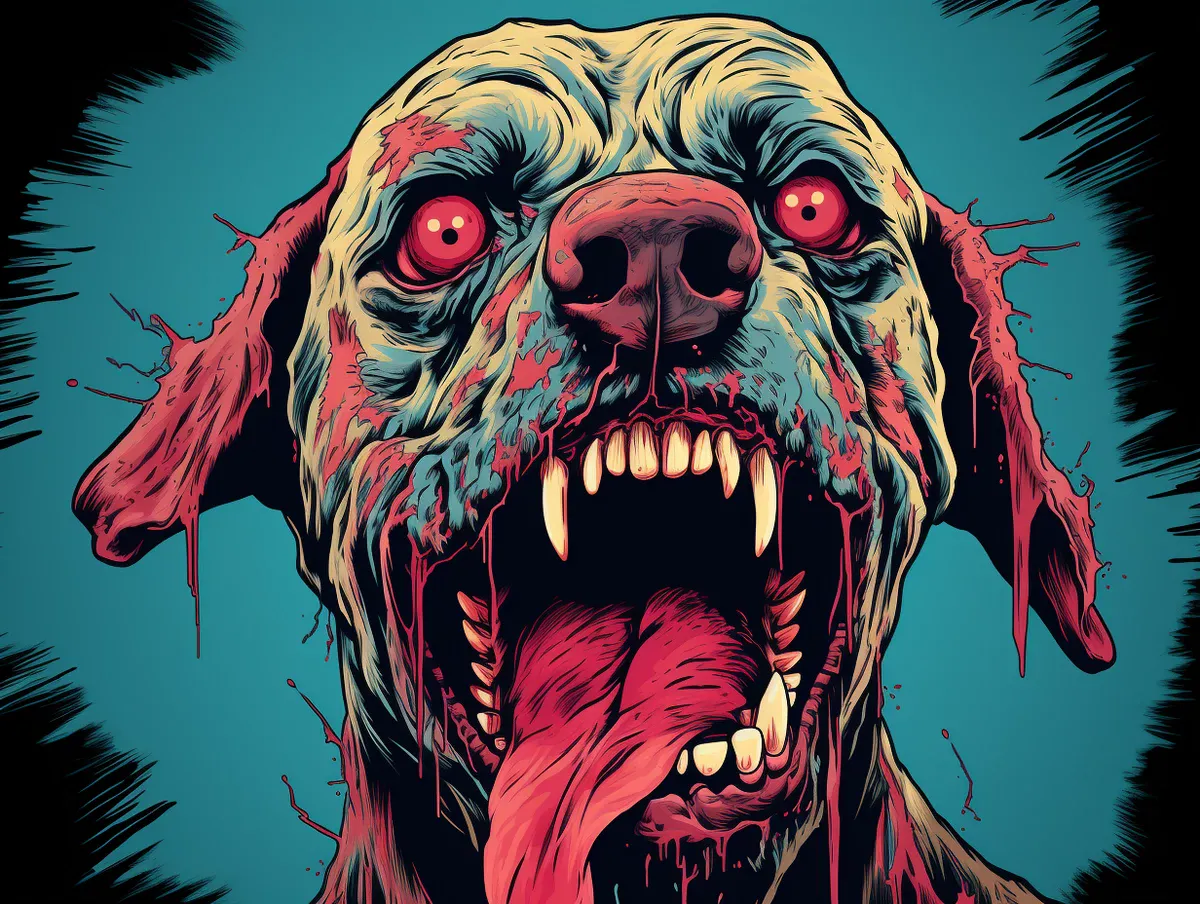
7. What Are Zombies Afraid Of?
Oh, the irony! These creatures that strike fear into many have their own set of phobias. According to various myths and legends, what zombies are afraid of often includes salt, mirrors, and certain loud noises. In Haitian folklore, for instance, scattering salt or rice can distract a zombie because they’d feel compelled to pick up each grain. Talk about a tedious task!
But remember, if you’re ever chased by a zombie, don’t count on these to save you. After all, modern movie zombies seem to have a much more diverse palate.
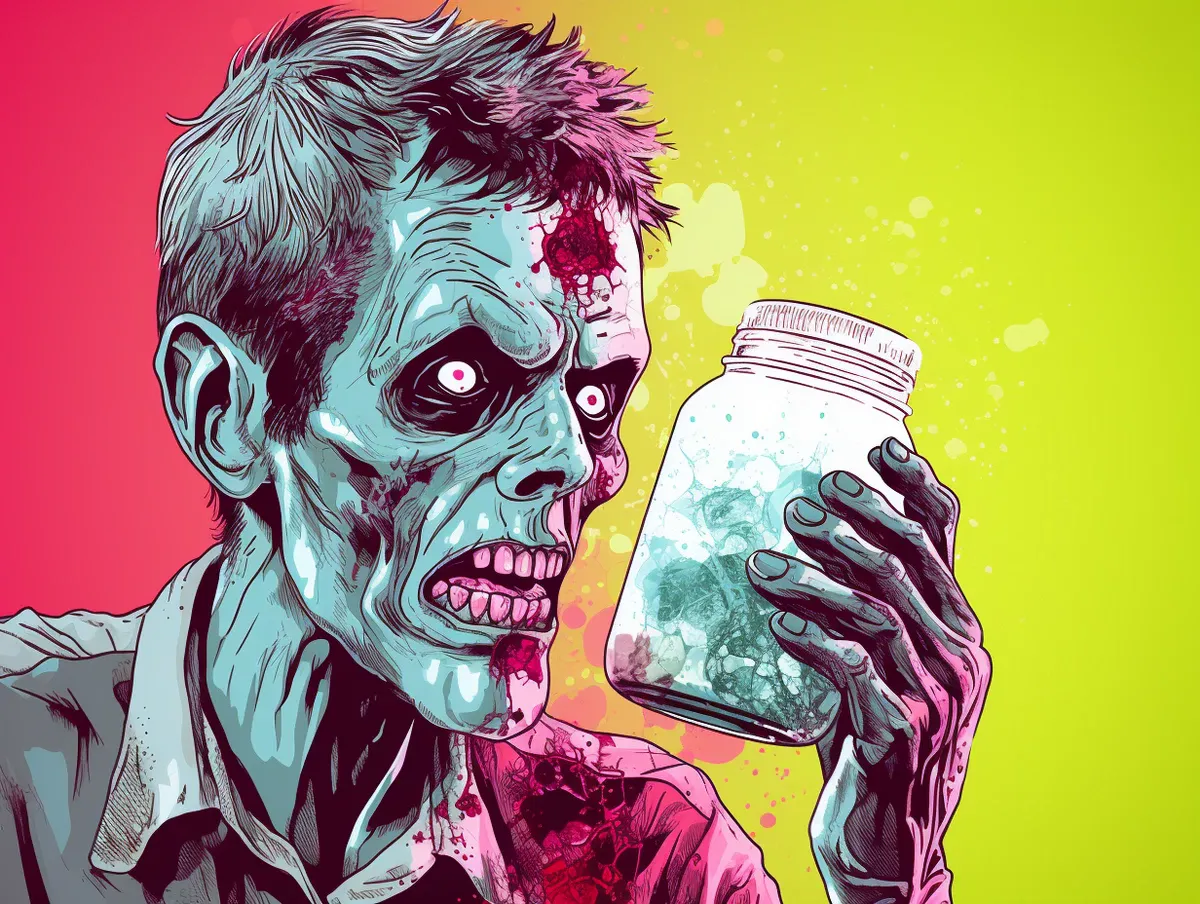
Zombie looking perplexed at a salt shaker.
8. The Musical Lives of The Zombies
Hold onto your drumsticks, because this isn’t what you think. We aren’t talking about undead headbangers, but an actual rock band from the 1960s named “The Zombies.”
Famous for hits like “Time of the Season” and “She’s Not There,” The Zombies had nothing to do with the undead, but they sure knew how to bring the house down. It’s a whole different kind of zombie fever when their tunes come on.
9. Zombies in Outer Space?
One might think zombies are purely an Earthly concern. But science fiction has taught us to think bigger! There are numerous tales of space explorers encountering zombified aliens or getting infected by strange cosmic entities.
It’s a reminder that the universe is vast and mysterious, and well, possibly full of zombies. So, before planning your interstellar trip, maybe pack some extra space salt? Just in case.
10. Zombies and the Fear of Epidemics
Why have zombie stories become so popular? Science provides an angle: they resonate with our real-world fears of uncontrollable epidemics. Stories of a zombie apocalypse mirror societal anxieties about diseases spreading uncontrollably. After all, what’s a zombie outbreak if not a very literal viral spread?
The success of movies and shows like “28 Days Later” or “The Walking Dead” might be partly attributed to tapping into these deep-seated fears.
11. Zombies in Literature: Not Just a Movie Star
Before zombies munched their way into film, they ambled through the pages of literature. There are many books, both ancient and modern, that feature the undead or concepts akin to zombification.
From Mary Shelley’s ‘Frankenstein,’ which showcases a creature brought to life from the dead, to more direct interpretations in modern horror fiction, the written word has always been fascinated with life after death. For those avid readers, this just might be a sign to update the TBR (to-be-read) list with some undead classics!
12. Zombie Run: When Exercise Meets The Apocalypse
If merely thinking about the treadmill makes you groan like a zombie, this one’s for you. Ever heard of a zombie run? Imagine a marathon, but instead of just running, you’re being chased by zombies (people dressed as them, of course).
The aim? Get to the finish line without the zombies “infecting” you. It’s fitness with a side of adrenaline! Zombie apocalypse training has never been this fun.
13. Historical Accounts of Zombies
While modern media might have us believe that zombie stories are a recent phenomenon, historical texts beg to differ. Ancient civilizations, from the Greeks to the Chinese, have accounts of reanimated corpses or spirits trapped in a liminal state between life and death.
Are these exact matches to our pop culture zombies? Not quite, but the fascination with death and what might lurk beyond is as old as time itself.
14. The Real Fear Behind Zombie Walks
Remember the World Zombie Day we chatted about? As fun as these global zombie walks are, they have occasionally stirred up real panic! In some instances, bystanders unaware of the event have called the police, genuinely believing a zombie apocalypse had commenced.
The blend of fun, activism, and slight chaos reminds us that even in our well-informed age, the line between fiction and reality can blur amusingly.
15. Zombies: The Video Game Celebrities
While zombies are big in movies and literature, they’ve bitten a huge chunk out of the video game world too. Games like “Resident Evil,” “The Last of Us,” and “Plants vs. Zombies” have allowed players to engage with the undead in various ways.
Whether you’re defending your home with peashooters or unraveling a deep story in a post-apocalyptic world, zombies have proven their versatility in digital entertainment. And let’s be real, there’s something cathartic about virtually battling the undead after a long day.
16. Fashion of the Dead: Zombie Walk Costumes
Did you know that the outfits worn by participants in World Zombie Day marches are considered high fashion in the undead world? Okay, maybe not, but the creativity on display would impress any fashionista.
From zombie brides in tattered gowns to undead doctors still “at work”, these gatherings are a showcase of creativity and dedication to the macabre. One can witness a plethora of outfits that can be both terrifying and amusing at the same time.
17. The Economic Impact of a Zombie Apocalypse
One might not immediately link zombies with economics, but let’s play with the thought. Economists have pondered the impact of a hypothetical zombie apocalypse. While the global economy would certainly see a downturn due to infrastructure collapse and reduced human capital, some sectors might boom.
Think about it: industries focused on defense, survival gear, and secure housing could see unprecedented demand. Not to mention the potential market for zombie repellents and cures!
18. Are Zombies Legal?
Sounds like a trick question, but there’s an interesting tale here! In 2012, the U.S. federal government had to officially state they didn’t know of any virus that could reanimate the dead.
Why? Because conspiracy theories and speculations were running rampant about a zombie apocalypse. That’s one for the books! It’s amazing how popular myths can have real-world ripple effects.
19. The Science Behind Zombies
Think zombies and science don’t mix? Think again! While the undead might not be strolling among us (thankfully), scientists have often used the concept of zombies to explain complex topics, from brain function to infectious diseases.
The idea of a creature driven purely by basic instincts provides a fascinating lens to explore the intricacies of the human brain. So, zombies, unknowingly, are helping advance science. Who would’ve thought?
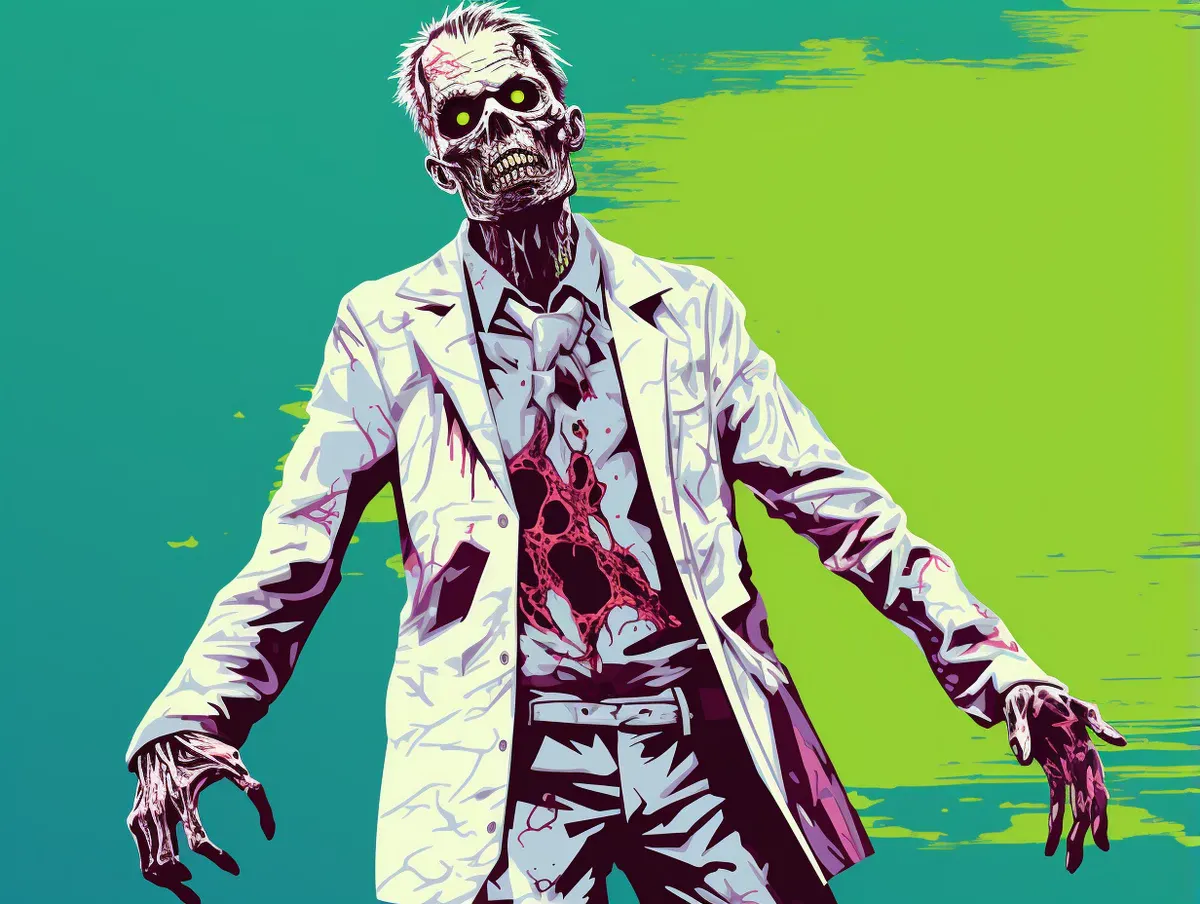
20. Zombies as Social Commentary
While zombies might seem like mere entertainment, many films use them as metaphors for deeper societal issues. From consumerism in “Dawn of the Dead” where zombies mindlessly wander a mall, to class divides in the Korean film “Train to Busan”, the undead often reflect our very alive concerns.
They act as a mirror, showing how humanity might react when faced with an extreme crisis. So, these movies aren’t just about gory scares, but also profound reflections on human behavior.
21. Zombese: The Grunting Language of Zombies
Ever wondered if zombies have a language? Well, while they aren’t discussing Shakespeare in between bites, film and TV portrayals often give them a characteristic grunt or moan.
Linguists and sound designers have had fun crafting these eerie sounds to make zombies universally recognizable. Whether it’s a low growl or a high-pitched shriek, these undead sounds have become an iconic part of zombie movies.
22. Zombie Food Myths Debunked
While pop culture might have you believe zombies only crave brains, early zombie movies and lore didn’t necessarily dictate a brain-only diet. It was George A. Romero’s films that popularized the idea of zombies munching on brains.
In many cultures and stories, zombies were more into regular human flesh. So, if you were stressing about protecting your noggin in a potential undead uprising, maybe broaden those protective measures a tad!
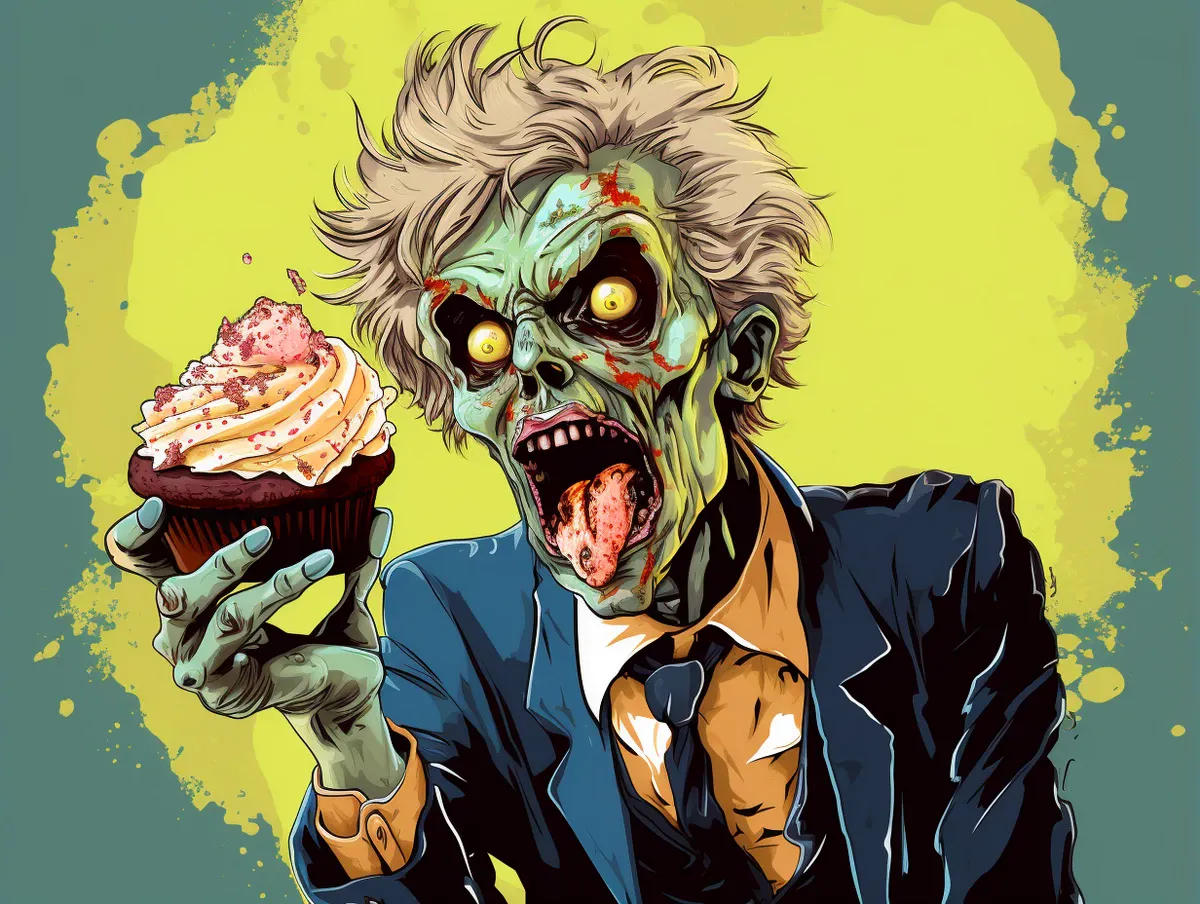
23. Zombies in Pop Music
It’s not just zombie movies that have had a taste of the undead. The music world has embraced them too! The band The Cranberries gave us “Zombie”, a song about the Troubles in Northern Ireland but with a hauntingly zombie-themed video.
Michael Jackson’s “Thriller”, with its iconic dance, became a global sensation, merging pop music with the undead realm. So, it seems zombies can not only walk and grunt but also groove to the beat!
24. Did Pirates Fear Zombies?
Caribbean lore is ripe with tales of the supernatural, and yes, that includes zombies! In many traditions, particularly those stemming from Haiti, it was believed that certain powerful figures could resurrect the dead and control them.
It’s said that some pirates and sailors were genuinely afraid of encountering zombified foes on their travels. While they were more afraid of the living than the dead, the idea of facing a shipmate they’d buried at sea was certainly spine-chilling.
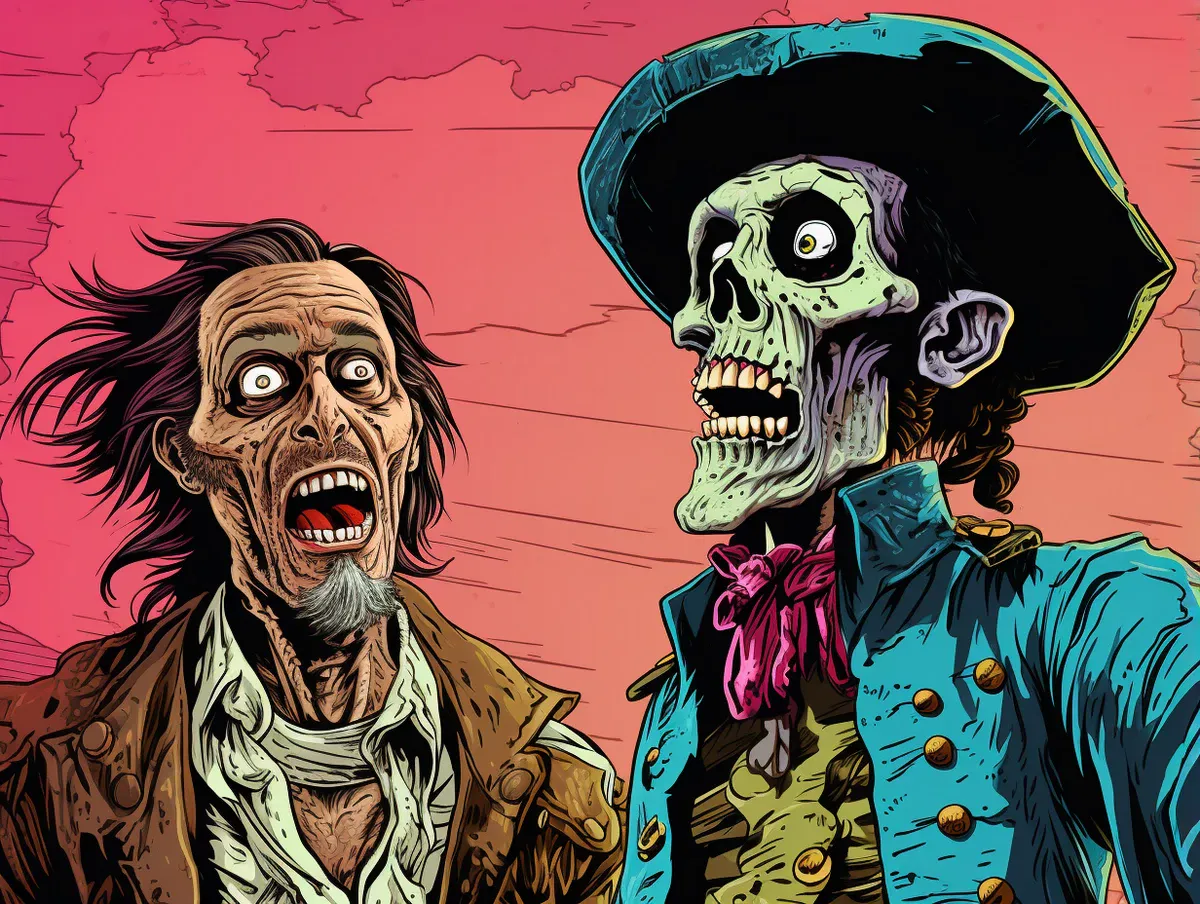
25. A Toast to Zombies: The Zombie Cocktail
Shaken or stirred, the undead make their mark even in the world of cocktails! The Zombie is a classic tiki cocktail made of fruit juices, liqueurs, and various rums. It’s a sweet, potent concoction that’s bound to knock the living daylights out of anyone!
This drink dates back to the 1930s and, like its namesake, it’s been a hit ever since. So, the next time you’re at a bar, why not raise a glass to our relentless, moaning friends?
26. Zombie Tech: AI and the Undead
The world of tech isn’t immune to zombie fever either. From using zombies in video game testing to metaphors in cybersecurity (zombie computers, anyone?), the living dead have staggered into the realm of ones and zeros.
Artificial Intelligence, especially, has sometimes been showcased with a zombie spin in pop culture – machines with no emotions or consciousness relentlessly pursuing their targets. Now, isn’t that a familiar concept?
27. The Brain’s Role in the Modern Zombie Mythos
The association between zombies and brains, especially the undead’s insatiable hunger for them, didn’t cement itself until the late 20th century.
This modern trope was popularized by the 1985 film “Return of the Living Dead.” While George A. Romero’s undead were more generalized flesh-eaters, it’s this movie that had zombies explicitly and memorably crying out for “Braaains!”
28. Zombie Evolution: Runners vs. Walkers
The traditional image of a zombie is a slow-moving, lumbering creature, but recent films and TV shows have introduced a far more terrifying prospect: running zombies.
Films like “28 Days Later” and the “Dawn of the Dead” remake popularized these swift monsters, sparking debates among fans about which version is scarier. Some argue that the relentless pace of runners makes them more of a threat, while others believe the steady, inevitable approach of walkers brings more tension.
29. Emotional Undead: Breaking Stereotypes
The modern era has explored zombies not just as mindless monsters but as creatures capable of emotions and memories. Shows like “iZombie” and films like “Warm Bodies” present zombies who retain flashes of their former personalities, challenge prejudices, and even form relationships.
This fresh take humanizes zombies and forces audiences to grapple with moral and ethical questions about identity and humanity.
30. Zombie-Themed Cafés and Bars: A Taste of the Apocalypse
Zombie culture has made its way into our dining experiences too. Around the globe, entrepreneurs and restaurateurs have opened zombie-themed cafés and bars, where customers can sip on “blood” cocktails and munch on brain-inspired delicacies.
The interiors of these places often look like post-apocalyptic safe houses, with sandbags, wooden planks, and (fake) blood splatters. Staff may be dressed as survivors or zombies, adding an extra layer of immersive fun.
Not just about the thrill, these establishments often serve top-notch food and drinks, making them popular for both hardcore zombie fans and those just looking for a unique night out.
FAQ
What are 10 interesting facts about zombies?
- The term “zombie” is believed to have derived from the Haitian Creole word “zonbi,” which refers to a person brought back to life without free will.
- The concept of zombies exists in various cultures, from Chinese “jiangshi” to Norse draugr.
- The idea of a zombie apocalypse has its roots in real-life fears of pandemics and societal collapse.
- The first feature-length zombie movie was “White Zombie” in 1932.
- Zombies were initially presented as slow-moving creatures, but modern depictions often showcase them as agile predators.
- “Night of the Living Dead” (1968) is often credited for defining the genre’s rules and themes.
- “World Zombie Day” is an international event that celebrates everything zombie – from films to pop culture.
- Zombie ants are real! Fungi infect ants, taking control of their bodies to spread spores.
- Zombies in media often serve as social commentary, reflecting societal fears and issues.
- The CDC has a “Zombie Preparedness” guide, not for actual zombies but to engage people in genuine emergency preparedness.
What do zombies not like?
In most depictions, zombies dislike bright light and loud noises. However, what they “dislike” can vary significantly based on the specific lore or source material.
What makes zombies so interesting?
Zombies capture our imagination because they toe the line between life and death, familiar and unfamiliar. They represent deep-rooted societal fears like loss of identity, uncontrollable pandemics, and the breakdown of societal norms.
What are zombie weaknesses?
Traditionally, zombies’ main weakness is damage to the brain. They also typically move slower than living humans, making them easier to outrun or evade in certain situations.
What do zombies eat?
In most lore, zombies prefer human flesh, particularly brains. The exact reason for this preference varies by the story but is often tied to the idea of the brain retaining some life essence.
What kills zombies the best?
The most common method is a blow to the head, destroying the brain. This can be achieved using guns, blunt objects, or sharp instruments.
Do zombies get angry?
Traditional zombies don’t have complex emotions like anger. They’re driven by a primal hunger. However, some modern depictions blur these lines, presenting zombies with rudimentary emotions.
Do zombies have emotions?
In classic lore, zombies lack emotions and function on basic instinct. However, recent stories like “Warm Bodies” have introduced the concept of zombies with emotions and memories.
Why do zombies walk like that?
The iconic zombie shuffle is likely due to their decaying bodies and diminished brain function. The brain’s motor skills are degraded, leading to the staggering, lumbering movement.
Why are zombies so hungry?
The insatiable hunger of zombies is symbolic of their unending desire for life or life force. Narratively, it adds to their horror, making them relentless predators.




